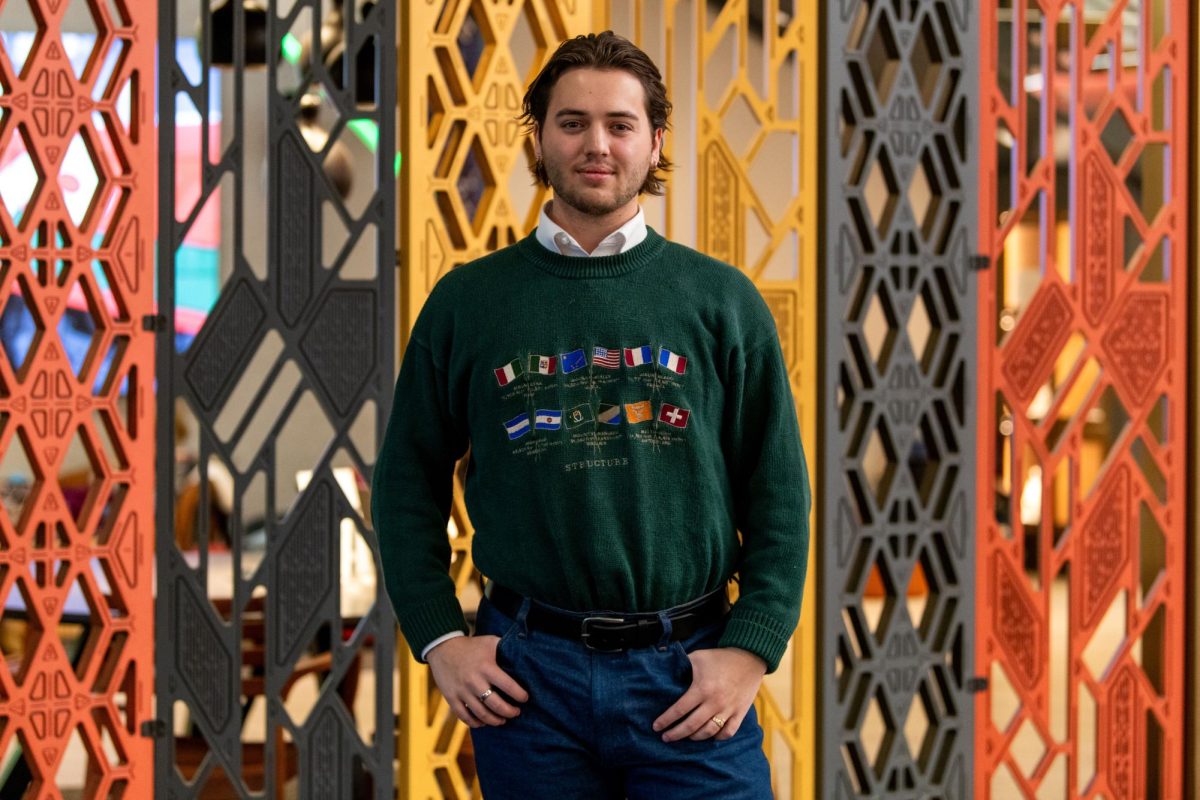Stamatakis: Studying abroad no magical pill
November 22, 2010
Many students might like to imagine hot Swedish babes eagerly awaiting in the light of warm… Many students might like to imagine hot Swedish babes eagerly awaiting in the light of warm sunsets over the Strait of Sicily while holding a glass of Marsala as a gorgeous Italian man serenades from nearby.
Others, perhaps of a more intellectual bent, might fancy meeting an old Irish folklorist while biking past weathered mountains.
Whichever way, be it in a cultural, social or sexual context, we all romanticize study abroad opportunities.
Whether such ideas are influenced by history classes, movies — I can’t help but name “Deuce Bigalow: European Gigolo” as the big culprit here — or other students, international life just seems exciting.
And as a new group is readying to leave Pitt for next semester, I can’t help but notice the expectations are as high as ever. Following is a sample of something you could easily hear a study abroad study say:
“And after touring the Riviera, I will Chunnel it to Trafalgar Square with my new French boyfriend and take pictures in the fountain and then I will stumble upon a sophisticated, down-to-earth, real indie-rock club.”
Perhaps exaggerated a bit, it nonetheless reflects the swirling land of romance, languages, accents and fine cooking that seems to exist everywhere but here. Drab Pittsburgh just has rain and fun-sucking machines.
After all, other places aren’t as one-dimensional, corporate, fat or greasy as America. Other places are just so much cooler.
But before everybody leaving packs beanie caps and kazoos in excitement, realize that what you are looking for might not be uniquely European, or Latin American or Australian.
Going abroad is not a magic pill that just suddenly makes your life interesting. After all, if that were the case, there would be no reason anybody would come to the United States.
But people do want to come to the United States to study. As noted in an article in The Sunday Times of London there is more than one British young woman who finds “the brash Abercrombie-and-Fitch-wearing American hunks alluring.” I thought Italian men were supposed to be the alluring ones.
And one description of an Australian program that sends high school kids to the United States raves, “The school experience in the U.S. is unique — students are encouraged to engage with their school community, which is a very social and fun atmosphere.” The trip, offered by World Education Program Australia, even promises participants will experience “one of the most anticipated events for American teenagers — the Prom.”
So people from the rest of the world come to America because it, too, is seen as an exciting, alluring place.
This reveals a dirty little truth about study abroad — it isn’t where you are going, but the fact that you are going at all.
Around the world, students just want something different — the expectation of a different atmosphere.
According to a paper by Jens Forster in the Journal of Experimental Social Psychology, “ian order to prepare for novel events,” people think more abstractly and with greater self-clarity.
Pure psychology is what creates the excitement of study abroad. It focuses our energies, sets expectations and allows our imaginations to run wild.
This leaves us with two ultimate conclusions: First, buying into psychological expectations that are unrealistic might make you complacent. Being someplace different won’t magically make you different, after all. If you just assume that being in France will get you a hot French boyfriend, you might be less inclined to actually do the legwork required to get a hot French boyfriend.
Secondly, to those of us stuck in America, be comforted that much of the excitement and intrigue of study abroad is purely psychological.
If all you can muster is a summer trip to Tennessee, but you can convince yourself it is novel and that you will get a hot Tennessean boyfriend, then you too will be able to experience some of the excitement.
Change your routine — don’t be confined by the fact you are “stuck” in the same place.
Ultimately, wherever you go, you are still you.
Germany will not make you cooler, and Minnesota will not make you lamer. It might make you think you are different, and it might even make you act differently, but just have a sense of realism when you think about either staying or leaving.
So instead of an Italian in Sicily, maybe drinking whiskey overlooking the Shenandoah Valley with a Kentuckian playing the banjo can be enough to spur an exciting summer or semester.
E-mail Nick at [email protected].







